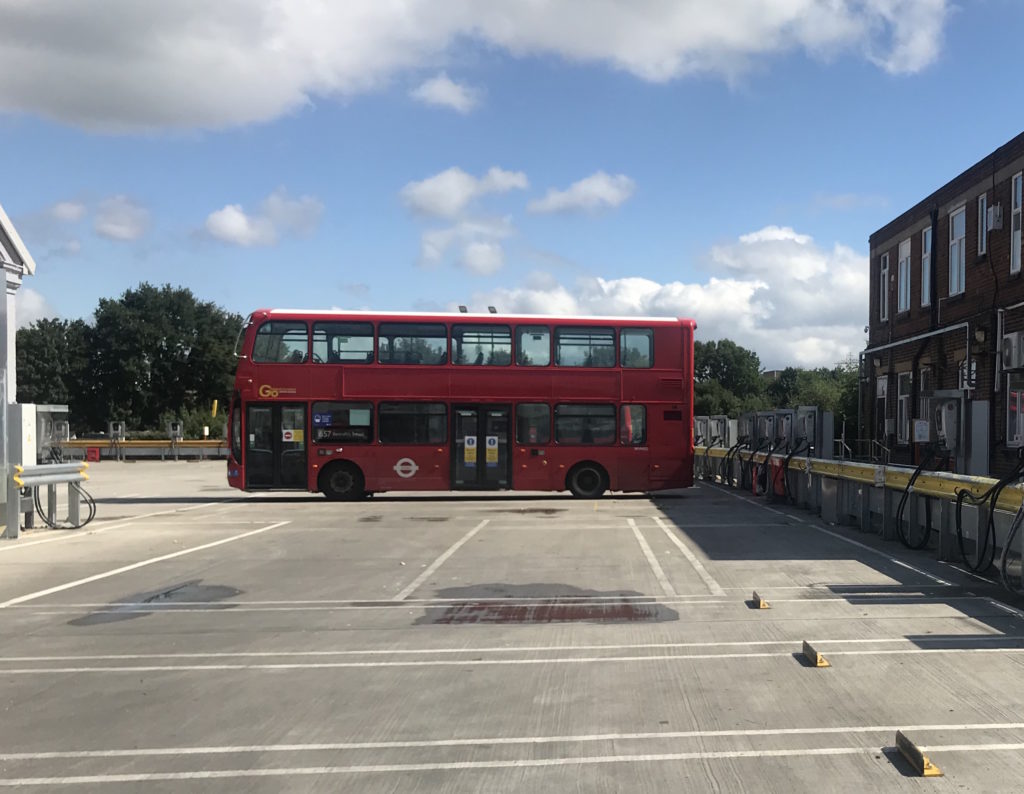
SSE Enterprise and UK Power Networks are among a consortium of firms bidding to turn a North London bus depot into a virtual power plant and work out how buses could balance local and national grids.
The government-funded Bus2Grid project at Northumberland Park aims to make 28 electric double deckers vehicle-to-grid (V2G) capable. The consortium thinks they will be capable of returning more than a megawatt to grid, and will use the trial to work through the challenges in enabling the buses to provide balancing services and reduce constraints while respecting operational requirements and battery life.
While there are questions around vehicle-to-grid’s mass market viability, buses are depot-based, have big batteries with predictable route patterns and (usually) timetables.
“That means we can easily predict and plan for how we can use any spare electrical capacity they can offer,” said UK Power Networks head of innovation, Ian Cameron. “For example, we could use them as energy storage devices that could add capacity and help us to increase the volume of renewable energy exported onto the network when supply might otherwise be exceeding demand.”
According to SSE’s Bus2Grid site: ‘Electric bus depots as a source of energy and power can provide 300kWh per bus and 40kW export capacity per charging point for around 120 buses per depot (London average).’ It adds: ‘With V2G technology the potential could provide huge increases: 36MWh per depot and 4.8MW per depot.’
That flexibility could be used for national and local grid balancing, with both UKPN and SSEN starting to procure services in larger volumes.
Also involved in the trial are: TfL, bus manufacturer Build Your Dreams/Alexander Dennis Limited (BYDADL), bus operator Go Ahead Group, Leeds University with aggregation of the buses supported by Origami.
More detail here.



